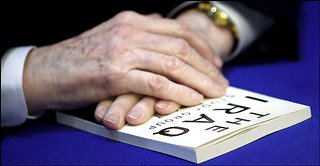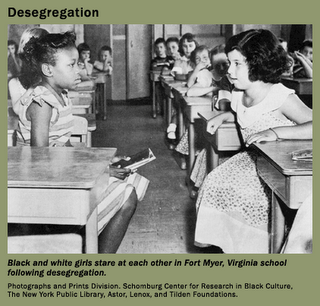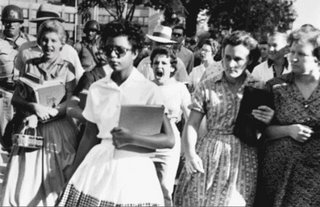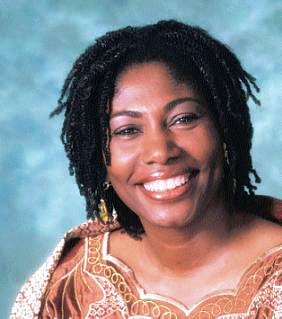Can We Test for Racism?
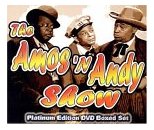
CNN"s Paula Zhan special entitled,"Skin-Deep: Racism in American” reports that 80% of people polled believe they are not racist. On the other hand, 80% believe racism is a serious problem in America. So if no one is a racist, than how do we explain the belief that racism is a major concern for Americans? It seems, racism is some one else's problem. At an individual and personal level, we always find ways to be "right" about the way we live our lives and the other guy is "wrong" in the way he or she lives their lives
If you are wondering if you have racial biases, recently a group of social scientists have developed an on-line test called the Implicit Association Test (IAT). This test is quite controversial and at present is being used only as a method to further more discussion on race. The IAT measures implicit attitudes and beliefs that people are either unwilling or unable to report. If you have a preference for certain types of people,supposedly this test can measure that distinction.

Test or no test, racism continues to raise its ugly head in both the private and public lives of Americans. It is not limited to the uneducated but shares an equally ugly heritage with the more privilege and learned of our society. Outbursts of violent racist ranting and raging are familiar events on and off the big screens and performances stages around the country. Michael Richard's recent "rant" opens the old wounds of racism. Again, we are asked to believe that these outbursts are single one time occurrence and do not represent any deeper societal sickness. But do they?
If we define a racist according to the dictionary as “a person with a prejudiced belief that one’s race is superior”, does that mean people of color cannot be racist? Or are we just exhibiting internalized racism. Racist constructs exist where there is a perception or the reality of power and influence. And since people of color, as a whole, do not have power in any real mass way, we are constantly reacting to racism as opposed to being inherently racist. We show all the signs of decades of oppression and repression that eats away at the core of who we are.
For example, I was visiting an exclusive country club with a friend, and while walking through the dinning hall ,an elderly white man asked me to get him a drink. I politely responded, "I do not work here" and under my breathe I said, "Why don't you get me a drink." Some part of me, may have wanted to go nuclear on him. Another part of me, understood that his personal life orientation has allowed him to act or react in certain ways. Years of conditioning has allowed a certain insensitivity to develop. Unless we are constantly and diligently working towards self–awareness , white Americans will continue to make these mistakes and non-white Americans will continue to be in the reactive mode.
Whites and people of color, all need to talk about racism: to look at its repercussions and consequences. We need to reconcile our pain and hurt. And lastly, we need to transcend our shame and guilt of the legacy of slavery and slave-holding.
Do you have racial preferences?
Take the CNN test and write me back. Let me hear your thoughts on race, racism, and reconciliation.




